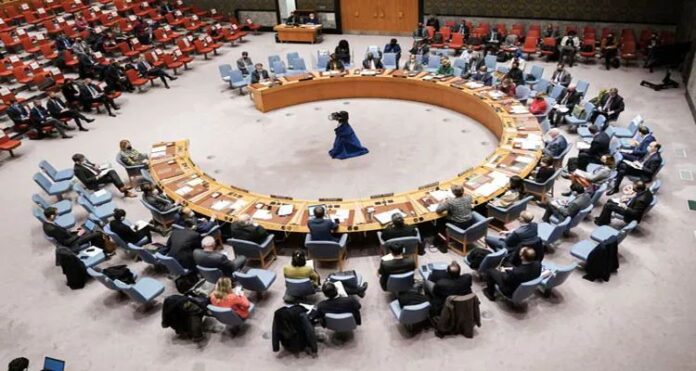| Translate This News In |
|---|
The long-simmering debate over UN reform, particularly the role of the Security Council, that does not reflect today’s world and failed to prevent Russia’s invasion of Ukraine, has become acute.
In a blistering call for the UN to exclude Russia from the World Body, Ukrainian President Volodymyr Zelensky recently asked bluntly, “Are you ready to close the UN?” and abandon international law. “If the answer is no, you must act immediately.” And, after the Security Council failed to prevent his country’s brutal invasion, he told Japanese lawmakers in a separate speech, “We have to create a new tool” capable of doing so. The United Nations, founded in 1945 with the goal of ensuring world peace and preventing World War III, has granted disproportionate power to the five permanent, veto-wielding members of the Security Council — the United States, Russia, China, the United Kingdom, and France — in a way that allows them to protect their own interests while maintaining a heavy hand in world affairs. As a result, Moscow has used its Security Council veto 15 times in votes involving its ally Syria since 2011.
However, the veto power ensures that Moscow will never be removed from the Council, as Article 6 of the UN Charter allows the General Assembly to exclude a member only… on the recommendation of the Security Council.
In a similar vein, the United States and the United Kingdom invaded Iraq in 2003 without UN approval – and with no repercussions for their permanent seats on the Security Council.
Aside from the veto issue and the lack of global balance among Security Council members (no African or Latin American country holds a permanent seat), the Council grants Washington, London, and Paris a near-monopoly on some issues.
According to the ambassador of one of the current ten non-permanent Security Council members, the distribution of roles among the 15 Security Council members is uneven. The latter group, which is elected for two-year terms, is “assigned bureaucratic jobs.”
“We don’t think it’s a fair division of labour,” said the ambassador, who spoke on the condition of anonymity.
The Council’s current – and recurring – paralysis has been widely condemned, with even UN Secretary-General Antonio Guterres lamenting its shortcomings.
“There’s a pretty fundamental problem there,” US Secretary of State Antony Blinken admitted the day after Zelensky’s futile call to expel Russia.
‘Like cholesterol,’ he says.
According to Bertrand Badie, a Paris-based international relations expert, the United Nations is “like cholesterol”: “there is the good,” most notably in the humanitarian aid distributed by the UN that saves lives all over the world, and “there is the bad, with the Security Council.”
While admitting that there has been “intense criticism” of the world body, the ambassador added, “Where will we be if we didn’t have any of that?” – none of the “good” done by the UN.


















